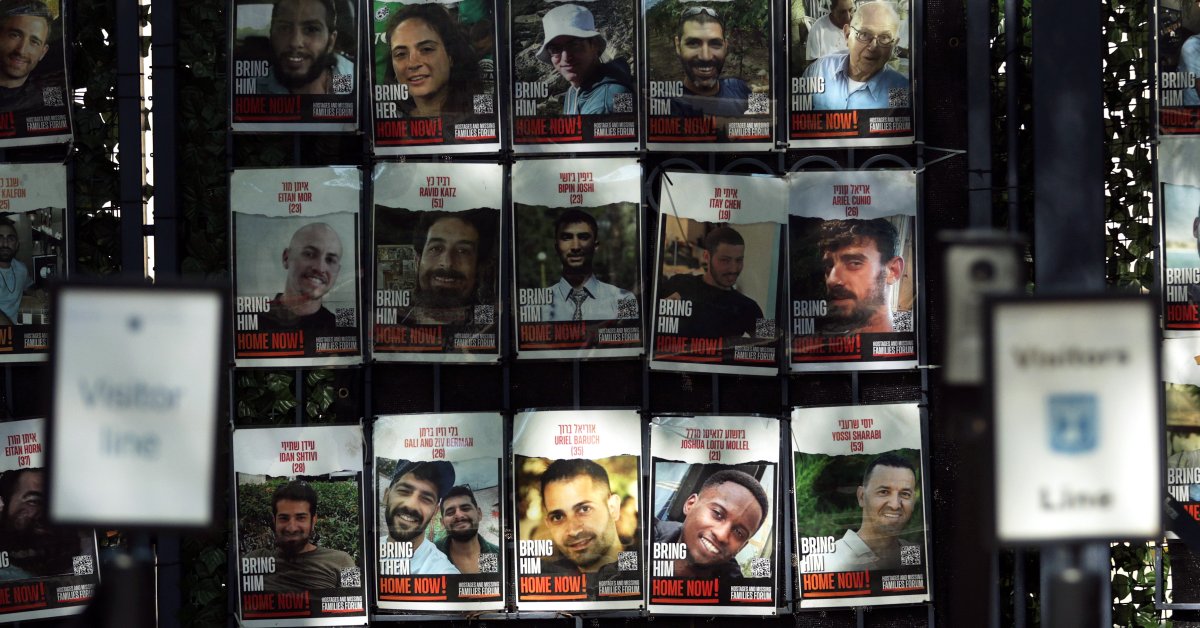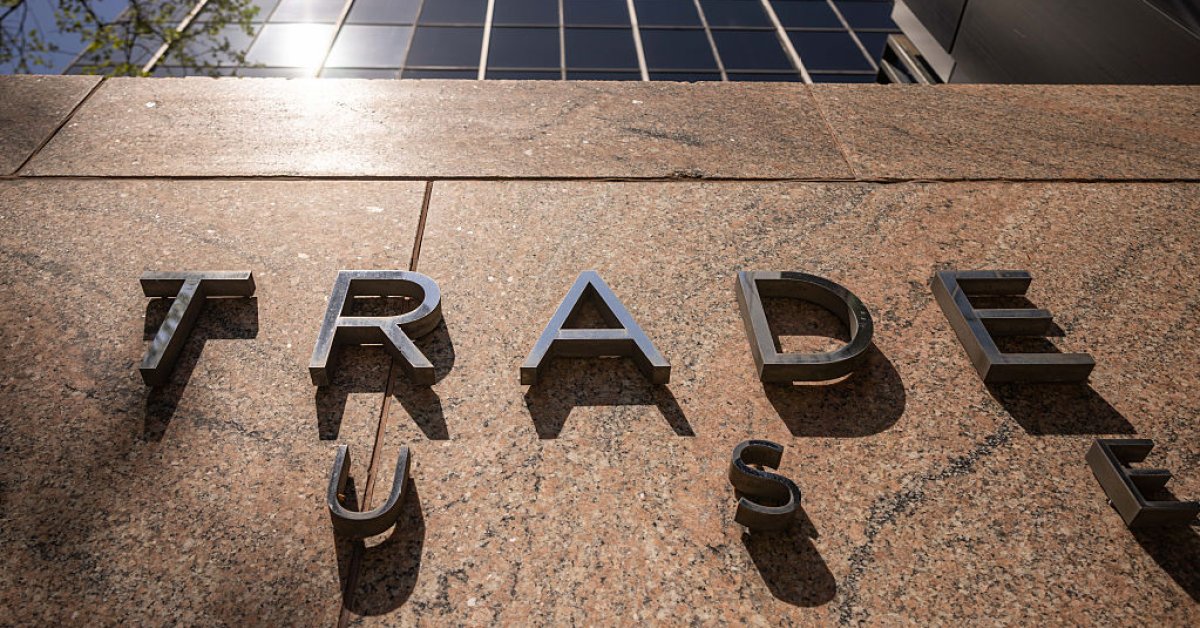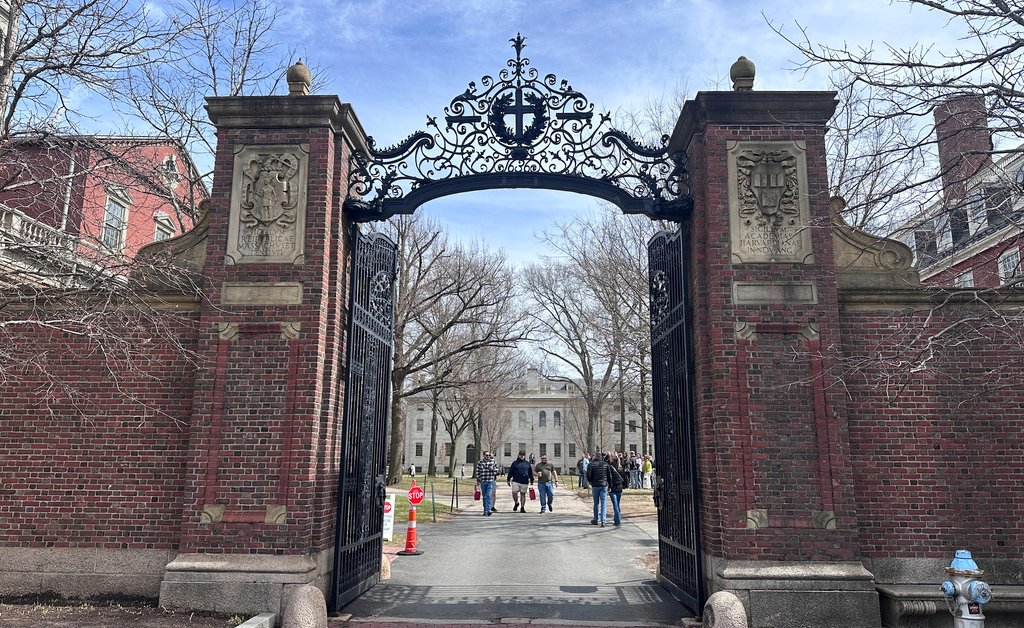Families of Israeli hostages held in Gaza and a former captive have condemned the U.K. government’s announcement that it will recognize a Palestinian state this September unless Israel meets specific conditions, calling the move a dangerous concession to terrorism.
Emily Damari, a British-Israeli citizen who was held hostage by Hamas for 471 days before her release in January, said she was “deeply saddened” by the U.K.’s position. In a post on social media, she warned the decision risked legitimizing political violence.
“This move does not advance peace—it risks rewarding terror,” she said. “It sends a dangerous message: that violence earns legitimacy.” TIME has approached Damari for comment.
The announcement from Prime Minister Keir Starmer has triggered sharp responses both domestically and from within the global Jewish community. The Board of Deputies of British Jews, a leading U.K. Jewish organization, said it was seeking clarification that Britain would not recognize Palestinian statehood while Hamas continued to hold hostages and reject ceasefire terms.
Damari was taken from her home in the Kfar Aza kibbutz during the October 7 Hamas terror attack that killed more than 1,200 people and led to the kidnapping of roughly 250 others. She was shot in the leg and hand during her abduction. Her release in January this year came as part of a temporary ceasefire that saw 30 hostages freed.
The Hostages and Missing Families Forum, which represents relatives of those still being held in Gaza, echoed Damari’s concerns, calling the U.K. move a “clear violation of international law.”
“If the international community truly desires peace, it must join U.S. efforts by demanding first the release of all hostages, followed by an end to the fighting,” the group said in a statement Wednesday.
An estimated 50 hostages remain in Gaza, 29 of whom are believed to be deceased, according to the Israeli government.
U.K. joins other nations in move towards recognizing Palestinian state
Starmer announced on Tuesday that the U.K. would move to formally recognize Palestine at the United Nations General Assembly in September, unless Israel halts military operations in Gaza, agrees to a ceasefire, and takes steps toward a sustainable two-state solution. He also urged Hamas to release all hostages, disarm, and forgo any role in governing Gaza.
Recognition would mark a significant shift in British foreign policy and align the U.K. with growing European momentum behind Palestinian statehood. France made a similar pledge last week, with Foreign Minister Jean-Noël Barrot hailing the U.K.’s decision as part of a broader push to “break the endless cycle of violence” and “reopen the prospect of peace in the region.”
Ireland, which already recognizes Palestine, welcomed the development. “We need aid to flow, release of hostages and a viable two-state solution,” Tánaiste Simon Harris said Tuesday.
The growing push for recognition—largely driven by outcry over Israel’s ongoing military campaign, mounting civilian casualties, and the stalled peace process—marks a critical turning point in international engagement with the conflict.
The two-state solution—establishing independent Israeli and Palestinian states side by side—is widely viewed by the international community as the most viable path to lasting peace.
In total, nearly 150 U.N. member states now recognize Palestine, but the backing of major Western powers like the U.K. and France adds new weight to the initiative. If implemented, Britain and France would become the first G7 nations to formalize recognition.
Palestine recognition plan draws international support and condemnation
The Palestinian Authority, which administers parts of the West Bank and represents the Palestinian Liberation Organization (PLO), welcomed Starmer’s announcement. Hussein al-Sheikh, vice president of the PLO, called the U.K. move “a confirmation of commitment to international law and the right of the Palestinian people to self-determination.”
Hamas has not formally responded to the U.K. statement but welcomed Macron’s similar proposal last week. In that statement, Hamas reiterated its desire to see an independent Palestinian state on “all occupied lands”—a phrase broadly interpreted as including all of present-day Israel.
Israeli Prime Minister Benjamin Netanyahu issued a scathing rebuke, accusing Starmer of rewarding “Hamas’s monstrous terrorism and punishing its victims.”
“A jihadist state on Israel’s border TODAY will threaten Britain TOMORROW,” he said.
Israel’s Foreign Ministry said the British decision undermined ceasefire negotiations and the ongoing efforts to secure the release of hostages.
U.S. President Donald Trump also weighed in, warning that pressuring Israel would amount to “rewarding Hamas,” though he stopped short of directly criticizing the U.K.








